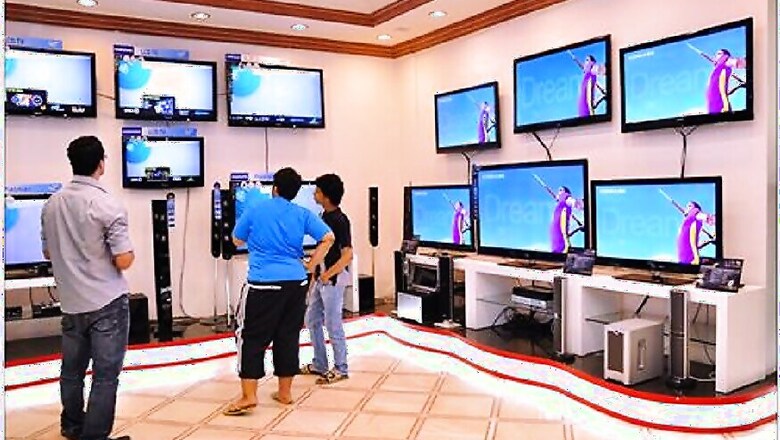
views
The growing trend of spending hours glued to a screen has been proven to be detrimental for the cognitive functioning and mental health for youngsters.
In fact, a recent study, published in JAMA Pediatrics and cited by Daily Mail, reported that scientists have claimed, children who spend hours watching television or playing video games fare worse at schools. But let us be honest, with little to no outlet for most people in today's fast paced world, televisions provide a welcome outlet for the mind to wander and feel relaxed. And despite its recent negativity, scientists do maintain that moderated television viewing has no ill effects.
So, who do we thank for the invention of the idiot box? Well it turns out that there is not one, but rather, several people who can be credited with the invention of the television set. From Vladimir K Zworykin, to John Logie Baird, Paul Nipjkow, Charles Francis Jenkins to Philo T Farnsworth, a number of people were instrumental in the creation of the television.
Dr Paul Nipkow was the first person to build a crude machine in 1884. It was based on a spinning disc with 24 small holes punched into it, which saw images being transferred thanks to an electric signal.
While Nipkow's invention never made it past the laboratory, there were others who gained an interest in creating something similar. Subsequently, Charles Francis Jenkins started to build a system using a variation of the spinning discs designed by Nipkow and in England, an inventor named John Logie Baird started experimenting with a similar system.
In fact, Baird was one of the first inventors of the mechanical television, demonstrating the first working television system on 26 January 1926.
The first electronic television was created by A Cambell Swinton. He began experimenting around 1903 with the use of cathode ray tubes for the electronic transmission and reception of images, which was the basis of electronic television that was subsequently developed in later years.
However, it was Philo Taylor Farnsworth, an American inventor, who is called to be a television pioneer. He is best known for his 1927 invention of the first fully functional video camera tube, as well as the first fully functional and complete all-electronic television system.
His ideas attracted David Sarnoff, the chief of the Radio Corporation of America (RCA), who sent Vladimir Zworykin, a Russian immigrant who had been experimenting with mechanical television to look at Farnsworth's work.
1939 RCA and Zworykin demonstrated their new electronic TV system at the World's Fair in New York City.


















Comments
0 comment